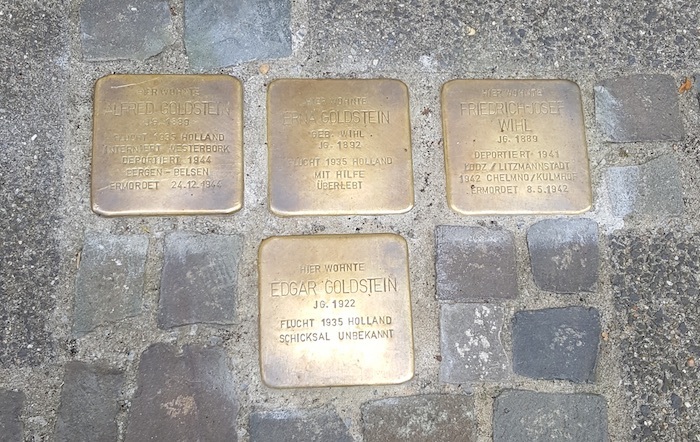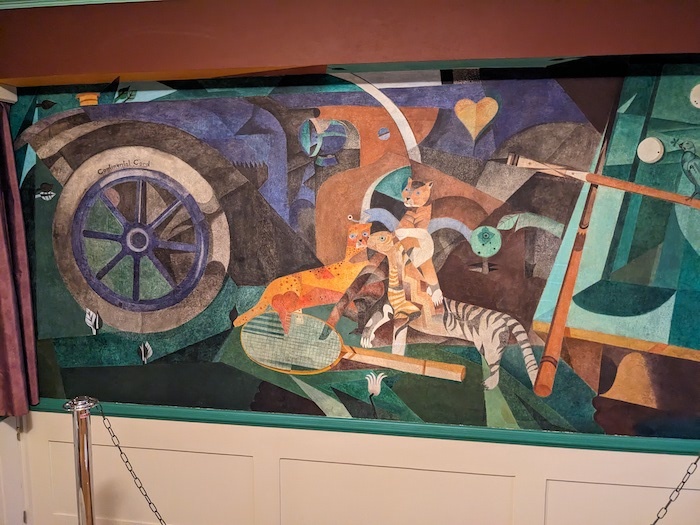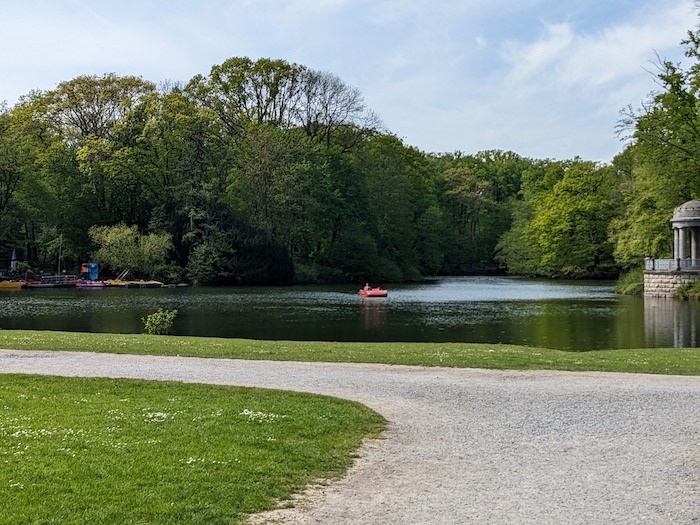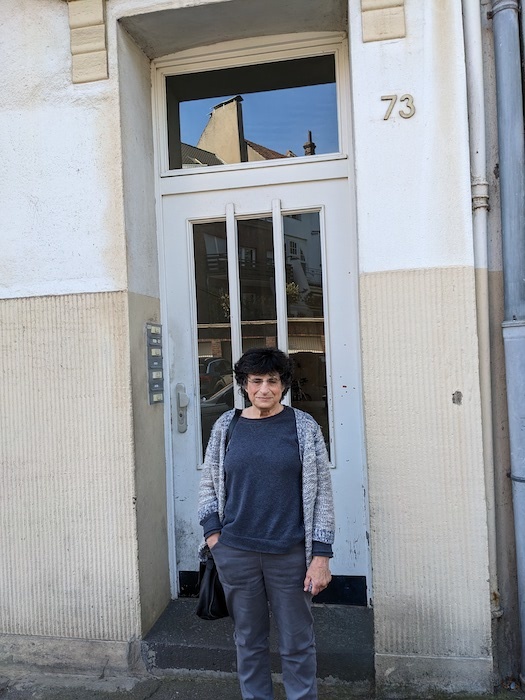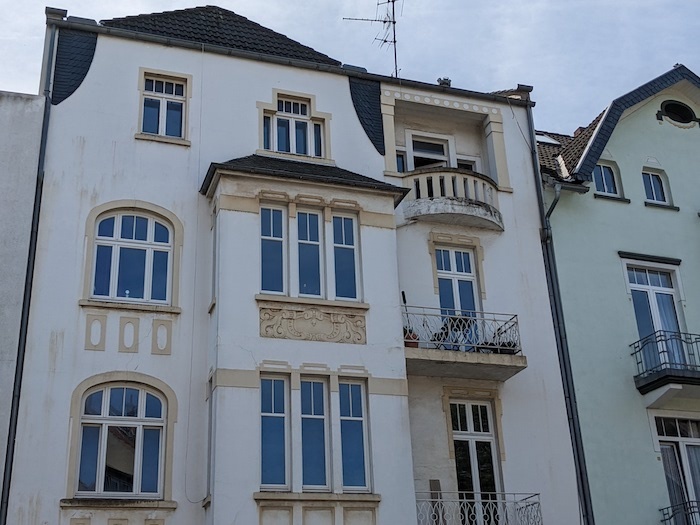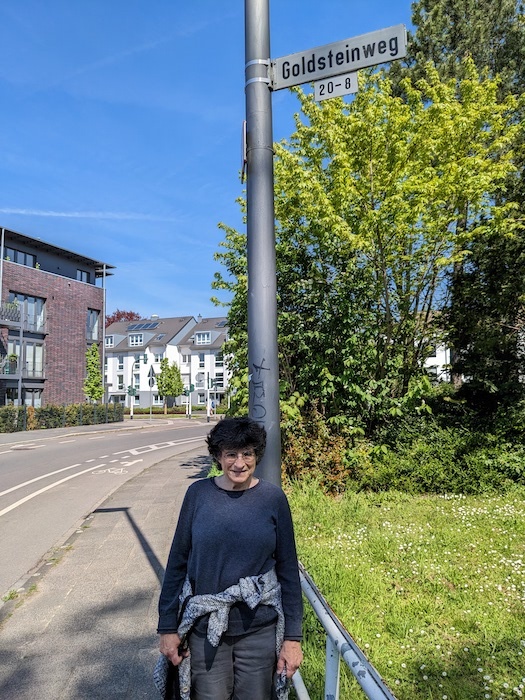The museum in Krefeld I’ve written about, the Villa Merlander, asked to see old photographs of my father and his family there, and I sent off about twenty-five of them. The clerk at the post office told me that they couldn’t go as registered mail because I’d used brown tape on the package, which strikes me as bureaucratic interference raised to a fine art, so I sent them by regular mail and hoped for the best.
A few days ago I got a letter from the photo archivist. One of the photos, dated 1916, had been turned into a postcard, something people did back then. It showed my grandfather and his motorcycle on the front, but we could never read the writing on the back, which was very faded, written in old-fashioned script, and in German. It turns out that he was writing from a hospital, that he’d gotten wounded during World War I. I’d known that he’d been a courier running messages to and from the front, but I’d never heard that he’d been wounded.
There was also a series of photos of people — my extended family, probably, though I didn’t recognize most of them — standing in front of some kind of business. The archivist identified it as a hotel in the mountains, near hiking trails in the forest. And it’s still there!!! — making it at least 95 years old. In fact it’s near Koblenz, where we’d stayed. The next time we go to Germany we might visit and show them the photos.
All this is exciting to me. My father died when I was twenty, before I got the chance to ask him questions, before I even felt more than the vaguest curiosity about his life. And he rarely talked about his past; it might have been too painful, or he might have been raised to keep things to himself, or both.
The archivist said that he was going on vacation and would write more when he came back. Very frustrating! It’s like reading a book and having to wait for the sequel.
A few days ago I got a letter from the photo archivist. One of the photos, dated 1916, had been turned into a postcard, something people did back then. It showed my grandfather and his motorcycle on the front, but we could never read the writing on the back, which was very faded, written in old-fashioned script, and in German. It turns out that he was writing from a hospital, that he’d gotten wounded during World War I. I’d known that he’d been a courier running messages to and from the front, but I’d never heard that he’d been wounded.
There was also a series of photos of people — my extended family, probably, though I didn’t recognize most of them — standing in front of some kind of business. The archivist identified it as a hotel in the mountains, near hiking trails in the forest. And it’s still there!!! — making it at least 95 years old. In fact it’s near Koblenz, where we’d stayed. The next time we go to Germany we might visit and show them the photos.
All this is exciting to me. My father died when I was twenty, before I got the chance to ask him questions, before I even felt more than the vaguest curiosity about his life. And he rarely talked about his past; it might have been too painful, or he might have been raised to keep things to himself, or both.
The archivist said that he was going on vacation and would write more when he came back. Very frustrating! It’s like reading a book and having to wait for the sequel.
Tags:
